Living Education Students “Church History Timeline” project
/in LivingEd - CharlotteIn the Introduction to Doctrines class, one of our student groups designed a “Timeline of Church History”. To take a look at their work, just click on the link below!
“Introduction to Church History”
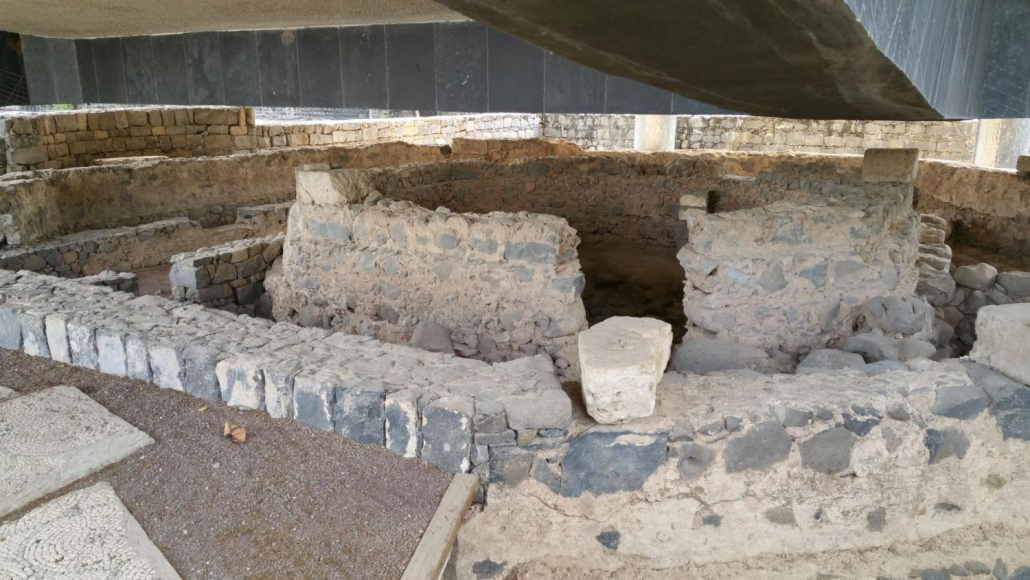
Second Thoughts: God Wrote a Book
/in LivingEd - CharlotteAuthor: Thomas White | Editorial Department, Living Church of God
Mr. Gerald Weston’s recent assembly provided a fascinating “speed run” through the Old Testament, noting each book, its highlights, and the affect it has upon the overarching flow of the Bible’s storyline.
He recommended taking a “swiss cheese” approach to the Bible—accept that there are holes in your comprehension of it, but appreciate what you do know, the understanding you have been given, and use that to piece it together and grow in knowledge.
Not an Easy Read

That was encouraging to me, because it can be easy for us to feel like we’re hopelessly ignorant when it comes to the Bible. Growing up in the God’s Church, I’ve heard several people admit to being afraid to talk about the Bible with brethren, because of how “stupid” they think they’re going to sound.
I get it—I’ve felt that way, too. The Bible is a thick, complicated book, and that’s before you get into all the translation issues.
It contains seemingly countless names of people, places, and things, goes into a shocking amount of detail in some places, contains a puzzling lack of detail in others, and just when you think you’re following what’s going on, it whips out a genealogy and fast-forwards a few hundred years. The Bible is beautiful, terrifying, comforting, and confusing, and anyone who claims to have read it cover-to-cover without at least once going, “Wait, what?” is probably lying.
But how could it be anything else? God wrote a book.

Sometimes I have to let that statement sink in. The more you think about it, the more it kind of blows your mind: God, the Eternal Family who knows all that could ever possibly be known, who is intimately aware of truths no puny human brain can even begin to fathom, wrote a book explaining the deepest secrets of life, the universe, and everything—and you and I actually kind of understand it a little bit. I mean, we get the gist! Even though Isaiah and Jeremiah lose us sometimes, Paul’s run-on sentences occasionally leave us blinking perplexedly, and our brains go numb every so often from all the numbers in Numbers, we still recognize characters, principles, laws, examples, and poetry that God Himself wrote.
Grateful for the Chance to Know

That’s not a reason to brag—without God’s Holy Spirit to help, any of us might think Ezra was a name from a Star Wars episode. But if the Lord of the Universe wrote a book and has gifted us with even a cursory understanding of it, we shouldn’t feel afraid to discuss it because we’re ashamed of not knowing it better. We should feel excited to discuss it because we have the chance to know it better. And we should be incredibly grateful to our Creator for whatever knowledge we have of the most important thing ever written.
Truly knowing the mind of God is just about the entire purpose of human life, so we should probably expect it to take a lifetime. Don’t be discouraged by what you don’t know. Be encouraged by what you can know—already, you probably know more than you think.
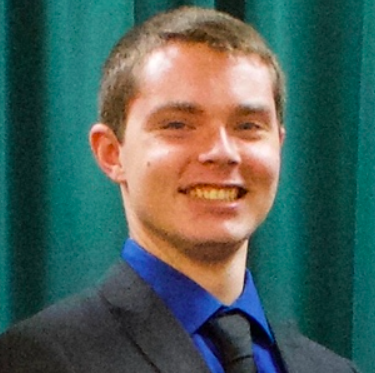
Thomas White was one of the onsite Living Education students for the 2018-2019 semesters. He also has a Bachelor’s Degree in English. Thomas currently works as an Editorial Assistant for the Living Church of God. According to his wife, he eats pizza in entirely the wrong way.
Second Thoughts: God Likes Technology
/in LivingEd - CharlotteAuthor: Thomas White | Editorial Staff, Living Church of God
No, really, He does.
I mean, not all technology equally—the commonly memorized Isaiah 2:4 makes that pretty obvious. The fact that in His government, people will “beat their swords into plowshares, and their spears into pruning hooks” shows that He’s more in favor of the pruning hook, plowshare, tractor side of technology than the sword, spear, machine gun side.

But to suppose that the Millennium is going to be Henry David Thoreau’s dream come true is to forget how very old the concept of technology is. Even the Bible is a type of technology, since scrolls, codices, and smartphone apps all had to be invented at some point. If God were against technology, it certainly wouldn’t make much sense for Him to use it to preserve and spread His inspired word.
God’s Word Through Tech
Such thoughts ran through my head as Mr. Daniel Guidry, IT Manager at LCG’s Charlotte headquarters, gave his assembly on, among other things, how thoroughly integrated God’s Work on Earth is with technology. Actually, every office I’ve seen in this building has a computer in it—and according to Mr. Guidry, God’s Work is being furthered by the tiny computers we have in our pockets, too, since more than 50 percent of visitors to our websites visit through their phones.
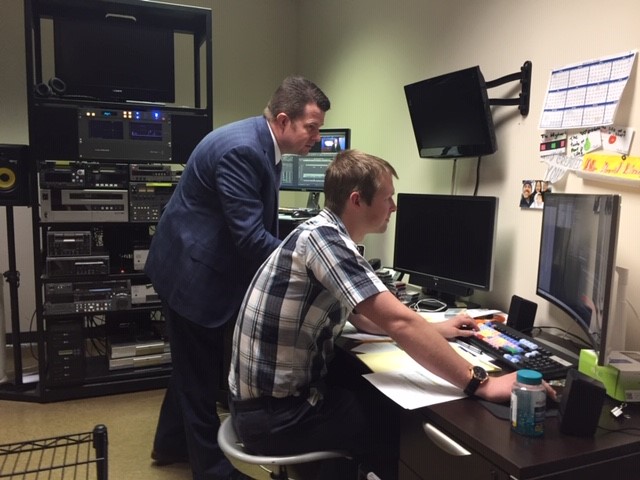
Not only does technology help us to take God’s work further than ever, it also allows us to be even better stewards of it. There was a time when a dog, little knowing the mischief it was doing, could set fire to twenty years’ worth of notes, and that was it: no more notes, unless you went through the time-intensive process of writing them all again. Now, we can upload documents and video files to the cloud, and back up entire databases four and five times over. The Church has backups for its backups, with multiple servers in North Carolina to handle web traffic and a server in Canada specifically for disaster recovery. As Mr. Guidry noted, “If this building burns down tomorrow, we can restore our systems from the Canadian offices and the business can continue.”
Faith and Prudence
More advanced technology usually means more ways of protecting the work God’s people are doing, and while our faith is completely in Him to sustain us and His mission, He’s definitely not against the time-honored trick of having a backup plan. Even David, one of the most faith-driven people to ever live, “chose for himself five smooth stones from the brook… and his sling was in his hand” (1 Samuel 17:40). Did he trust in God to take down Goliath? Absolutely. Was he about to “faithfully” head into battle with nothing but his bare hands? Not a chance. He took, along with his faith, his sling (technology) and four extra stones in case he missed with the first one. Faith works best when accompanied by prudence, and technology makes greater prudence possible.
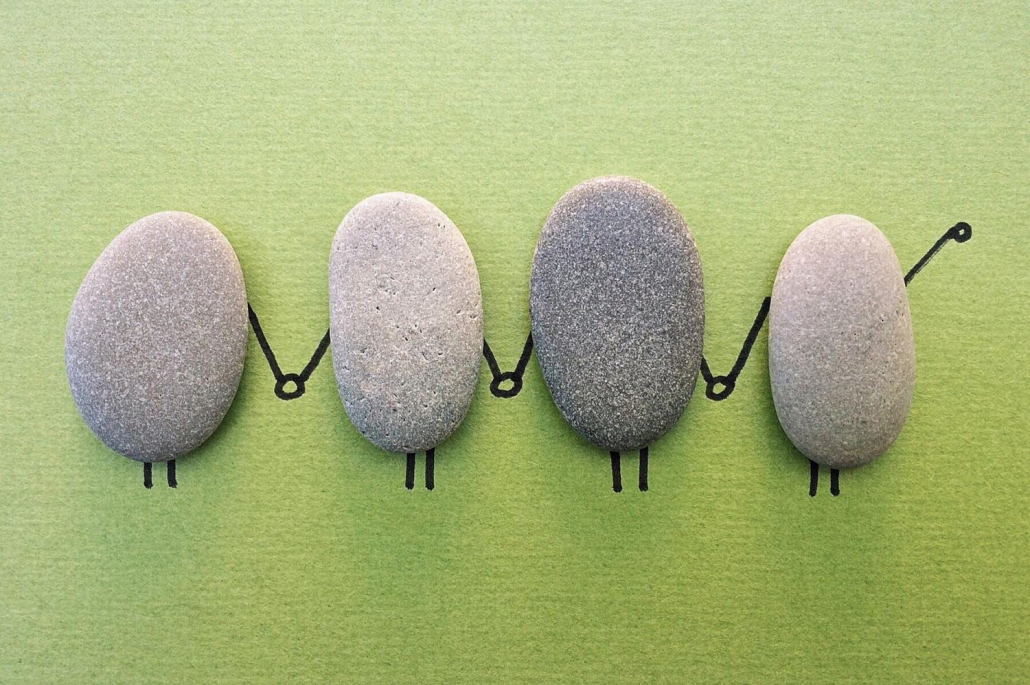
God uses tech, and He always has. Of course, Satan uses it as well, and we would be prudent to acknowledge that every product of his world, be it comic book, musical instrument, chocolate bar, or IT innovation, may have at least a little of his influence in it. But God’s willingness, even readiness, to use some of those same products for good reveals that at least a little of His influence is behind human invention, too. God likes technology—if we’re using it to glorify Him, of course.

Thomas White was one of the onsite Living Education students for the 2018-2019 semesters. He also has a Bachelor’s Degree in English. Thomas currently works as an Editorial Assistant for the Living Church of God. According to his wife, he eats pizza in entirely the wrong way.
2020 Living Education Archaeological Dig and Study Tour
/in LivingEd - Activities, LivingEd - CharlotteSecond Thoughts: Thank God for Personalities
/in LivingEd - CharlotteAuthor: Thomas White | Editorial Staff, Living Church of God

Personality can sometimes be a bit of a touchy subject, since… well, look at the word. Most of it is literally “personal.” Personality is personal, so approaching it as a topic inevitably asks you to look at yourself and wonder, “Is mine okay? What do people think of it? What do I think of it?”
This was the subject Mr. Richard Ames broached in his recent LivingEd-Charlotte Assembly, and he emphasized that while God intended none of us to be unique in character (one’s character being defined by how closely it resembles God’s), He absolutely intended us to be unique in personality.
If you’re like me, that can be a little confusing, so consider the example of the introvert and the extravert. Some would say, “Well, that’s a matter of character, since God wants us to be friendly and sociable,” but that’s really missing the point. Yes, introverts can be perpetually silent and thus spend all of their time either holed up in their bedrooms or creeping people out with thousand-yard stares—but extraverts can also be perpetually obnoxious and abrasive, making everyone around them wish they would just be quiet a second. There’s a dark side to both of these personalities, and whether or not someone falls into it is a matter of character.
More Than One Kind of Sociable
A sociable extravert can make a group feel energized and excited, bringing people together in a lively discussion and making everyone in that group interested in contributing to it. Extraverts gain energy from being around people, so groups are like giant batteries for them. By combining that energy with the character traits of kindness and empathy, they can lead a whole group of people into a genuinely great time, fulfilling and productive work, or even a lively, respectful, enlightening debate. Some of the most fascinating discussions I’ve ever been a part of were begun by sociable extraverts who started things off with, “Hey, I’ve got a question for you guys…”

Introverts don’t do groups. But that doesn’t mean they aren’t interested in people. An introvert spends energy on people, rather than gaining energy from them, so in a group setting, it’s like every individual in that group is taking energy from one source—the introvert is drained faster, and no recipient of that energy is getting very much. That’s why even sociable introverts might be quiet and reserved in group settings—their element is focused conversation where their social batteries can be spent gradually on one individual. A sociable introvert is interested in making a person feel safe, valued, and heard. Some of the most uplifting conversations I’ve ever had have been with sociable introverts who generously spent their energy on me.
The Vast Character of God
Of course, it’s not quite as simple as that—people are deep, and most are way too complicated to just be labeled “introvert,” “extravert,” or even “ambivert.”

But God bestowed an incredible blessing when He made such a range of personalities, enabling His perfect character to be expressed in a variety of ways, ensuring that we would never be an army of righteous robots. Who knows—maybe Christ and the Father even have different personalities. Maybe Christ, as the pre-incarnate Spokesman for the God Family, is more of the extravert, while the Father, as the one we pray to one-on-one, is more of the introvert.
Or maybe not—such things are mere speculation. Regardless, the image and character of God is vast enough to house a multitude of personalities, and we can all be sincerely, deeply thankful for that fact.

Thomas White was one of the onsite Living Education students for the 2018-2019 semesters. He also has a Bachelor’s Degree in English. Thomas currently works as an Editorial Assistant for the Living Church of God. According to his wife, he eats pizza in entirely the wrong way.
2019 Living Education Archaeological Dig and Study Tour
/in LivingEd - Activities, LivingEd - CharlotteSecond Thoughts: Lamps, Not Torches
/in LivingEd - CharlotteAuthor: Thomas White | Editorial Department, Living Church of God
“No one, when he has lit a lamp, covers it with a vessel or puts it under a bed, but sets it on a lampstand, that those who enter may see the light,” said Jesus Christ in Luke 8:16.
Here’s a thought: They had portable torches way before Christ’s ministry. Why didn’t He say, “No one who has lit a torch sticks it under a bed, but waves it around so that everyone can see him”? I mean, we’re supposed to make our spiritual lights obvious, right? Why are we lamps, not torches?

After hearing Mr. Michael DeSimone’s Assembly on how God’s people are making encouraging progress in getting the Gospel to the world, part of that scripture jumped at me in a new way. Mr. DeSimone showed us that when the titles of certain Tomorrow’s World telecasts are changed, made a little more “punchy,” those telecasts start racking up the YouTube views in a way they simply weren’t before. As it turns out, “clickbait” titles are used because people actually do click on them. Furthermore, when ads for free booklets are kept to a minimum on YouTube, Millennials such as myself tend to stick around longer, since we tend to appreciate ads about as much as Dracula would appreciate fresh garlic bread.
What We Have in Common
Those who have lit their spiritual lamps set them on lampstands, Christ said, “that those who enter may see the light.” Hopefully, those entering our houses are doing so because they actually want to be there—they already find us interesting, and want to get to know us better. We’re not to go out and coerce anyone into entering our houses, as if Christ expected us to be all “You will get in my house, you will look at my lamp, and you will like it.”

When we’re trying to befriend someone, or even convince someone, where do we start? With what we have in common with them, is where. We don’t open with, “Howdy stranger, that sure is some sinful music you seem to be listening to—interested in hearing why it’s completely of the devil?” No, because no one thinking they have nothing in common with you is going to enter your house, and they’ll never see the light of your lamp.
An Inviting Light

We’re to keep the lamp in the house, where it belongs, letting those who enter see the light—not bring it outside to shove it in unsuspecting faces. After we’ve made friends based on mutual interests, then we can look for opportunities to show them the Gospel in ways that speak to those interests. They’re our friends, or at least our acquaintances—they’ve “entered our house,” so to speak. And once they’re in there, it works even better if they notice the lamp before we point it out, so we can respond to their comments: “Oh, that? That’s my lamp. It’s actually extremely important to me—the most important thing in my life, in fact,” as opposed to, “And over here, you can see my truly amazing lamp, take a closer look, bask in its light, baaaaaaask.”
We’re lamps, not torches, because lamps are friendly, even intimate. Torches… well, there’s a reason they’ve often been accompanied by pitchforks. If we strive to reflect God in everything we do, and truly care about preaching His message to the world, we’ll do it in a way that will reach the world—not with the invasive, antagonistic light of a torch, but with the inviting, loving light of a lamp on a stand.

Thomas White was one of the onsite Living Education students for the 2018-2019 semesters. He also has a Bachelor’s Degree in English. Thomas currently works as an Editorial Assistant for the Living Church of God. According to his wife, he eats pizza in entirely the wrong way.
Second Thoughts: The Culture We Share
/in LivingEd - CharlotteAuthor: Thomas White | Editorial Staff, Living Church of God
Most of us know Matthew 24:14 verbatim: “And this gospel of the kingdom will be preached in all the world as a witness to all the nations, and then the end will come.” It’s encouraging on many levels, especially its use of the word “will.” The Gospel will be preached to all the nations. The end will come. There are no possibilities in this—only certainties that we can, and should, believe in with our might.

But why does the Gospel need to be preached to all the nations? As we well know, God’s not opening everyone’s mind now, so why is He emphatic about the Gospel being so widespread? With such a massive number of people hearing the Truth without the chance to internalize it, why must we bother making sure they hear it to begin with?
Our Sisters and Brothers
The answer is way too multifaceted for this post, but a small part of it struck me after hearing Mr. Peter Nathan’s recent Assembly on the Work in Africa. As he related the unique challenges, opportunities, situations, and brethren in that part of the world, I couldn’t help thinking that although I may be different in so many ways from everyone born and raised in any part of Africa, the African brethren and I nevertheless share a culture.
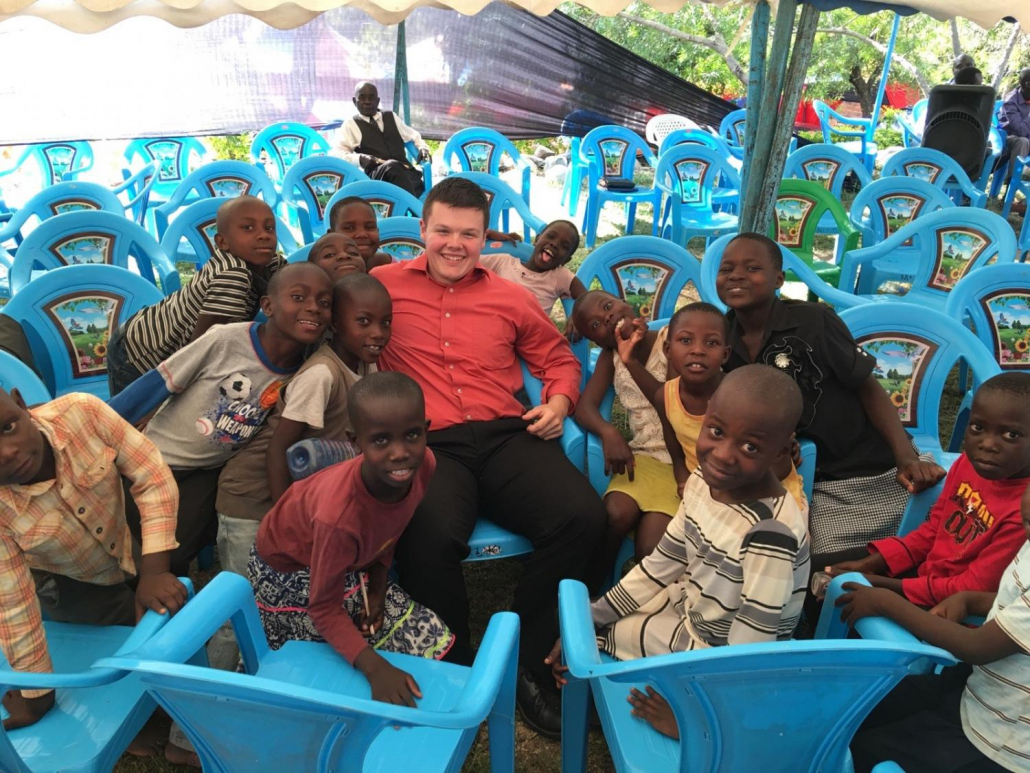
Those truly in God’s Church are all part of the same unifying culture—we all read from the same book (various translations notwithstanding), worship on the same day of the week, abstain from the same meats, believe in the same upcoming eternity, share the same ultimate destiny.
There are Church members in Africa whose languages I have no idea how to speak, and yet I have more in common with each one of them than I do with almost everyone I’ll pass on the road while driving home today. Those who strive to worship God in spirit and truth inhabit a common ground that transcends all the cultural boundaries that would otherwise be impenetrable. That’s how we can call each other brothers and sisters—because in every meaningful sense, we are exactly that.
That’s already beautiful, but it becomes doubly so when you consider that God chose each and every one of us. He wanted His people in North America to be siblings to His people in Africa. He wanted Saints in Australia to be family to Saints in South America. He wanted His begotten children in Europe to see His begotten children in Asia and recognize, “Here are my sisters and brothers.”
Why?
Harmoniously Different
It’s funny—I can’t help but think of a line from Ratatouille. Yes, the animated movie about the rat chef. Not exactly a film devoted to capturing reality, but I’ve always thought there was some truth in the phrase, “Not everyone can become a great artist, but a great artist can come from anywhere.”
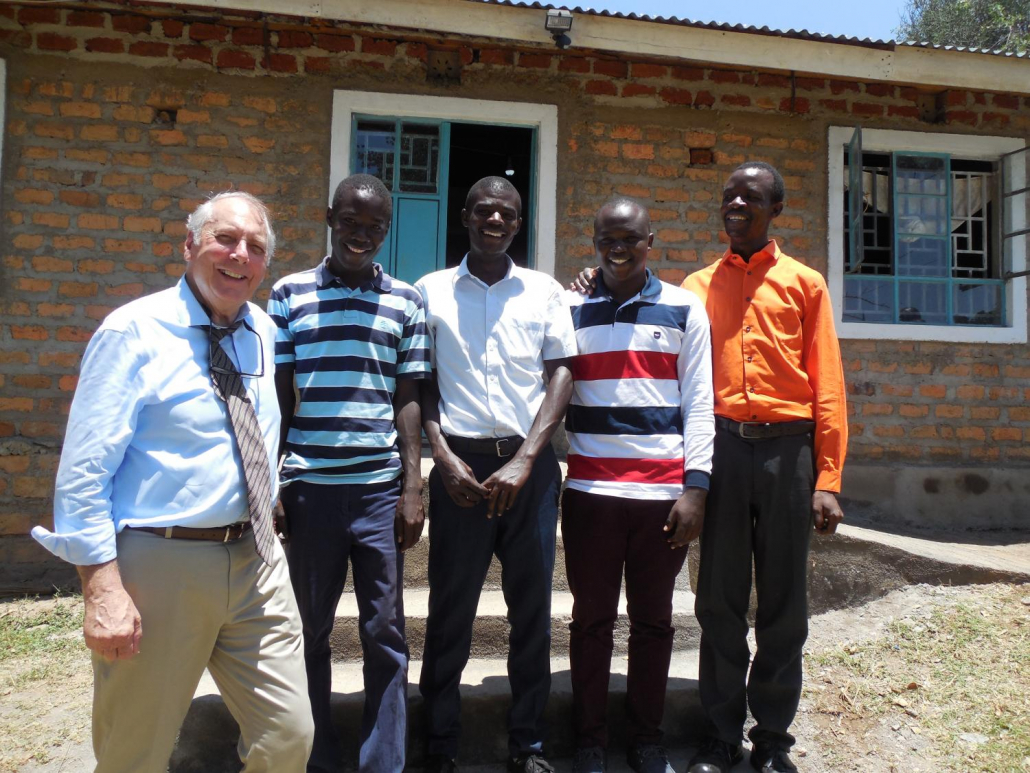
Maybe Jesus Christ had something similar in mind when He assured His disciples that the Gospel “will be preached as a witness to all the nations.”
Sure, not everyone will believe that Gospel, but those who do believe it will be made up of people from all over the world, proving that all worldly cultures pose not the slightest obstacle to the culture that is God’s Way.
Belief in God’s Truth doesn’t make us all the same. It wouldn’t be God’s Truth if it did, since God loves the individuality of each of His children. Belief in God’s Truth makes us unified—different, but harmoniously so. Although not everyone can currently become a Saint, a Saint can come from anywhere.

Thomas White was one of the onsite Living Education students for the 2018-2019 semesters. He also has a Bachelor’s Degree in English. Thomas currently works as an Editorial Assistant for the Living Church of God. According to his wife, he eats pizza in entirely the wrong way.
